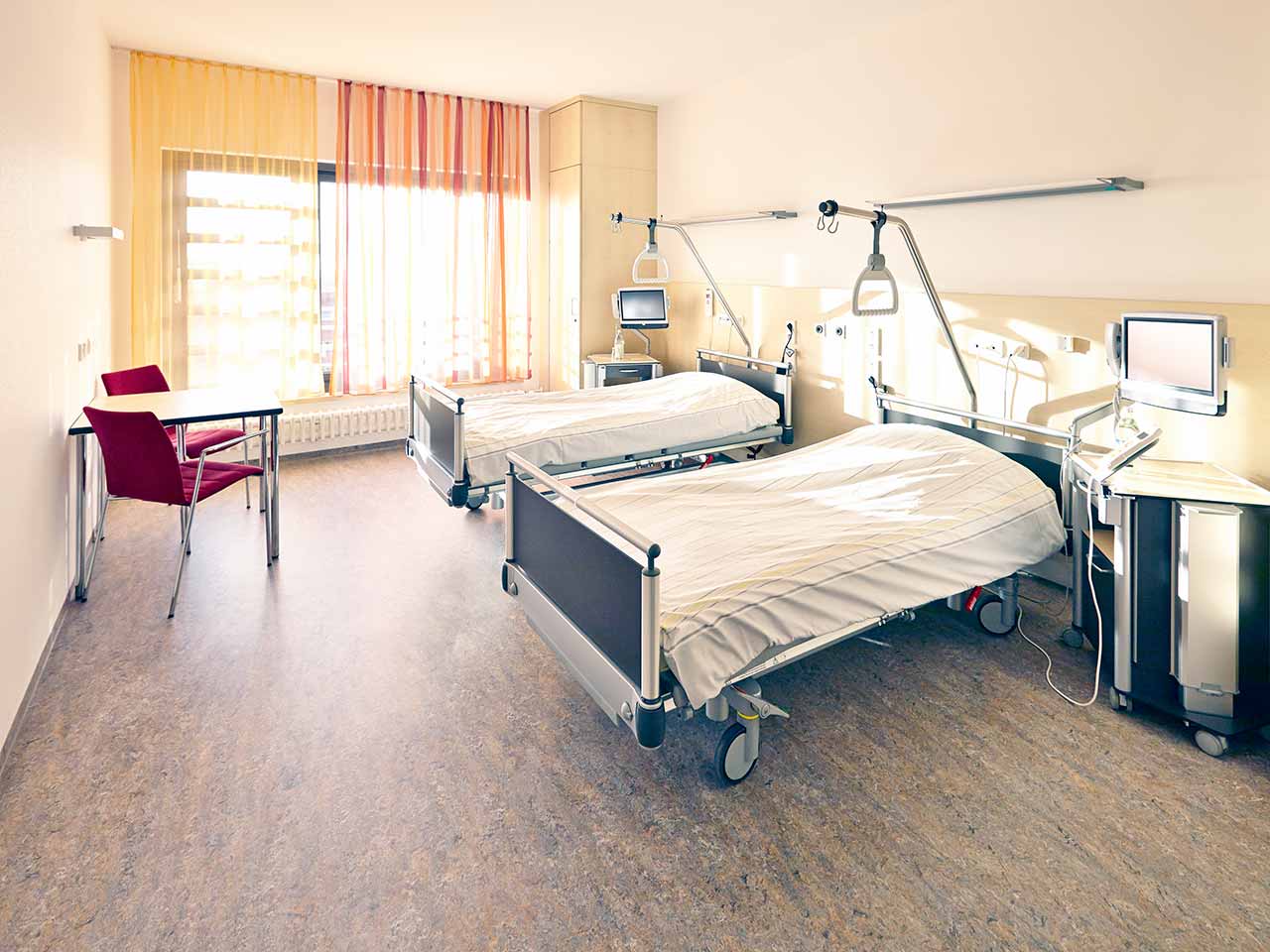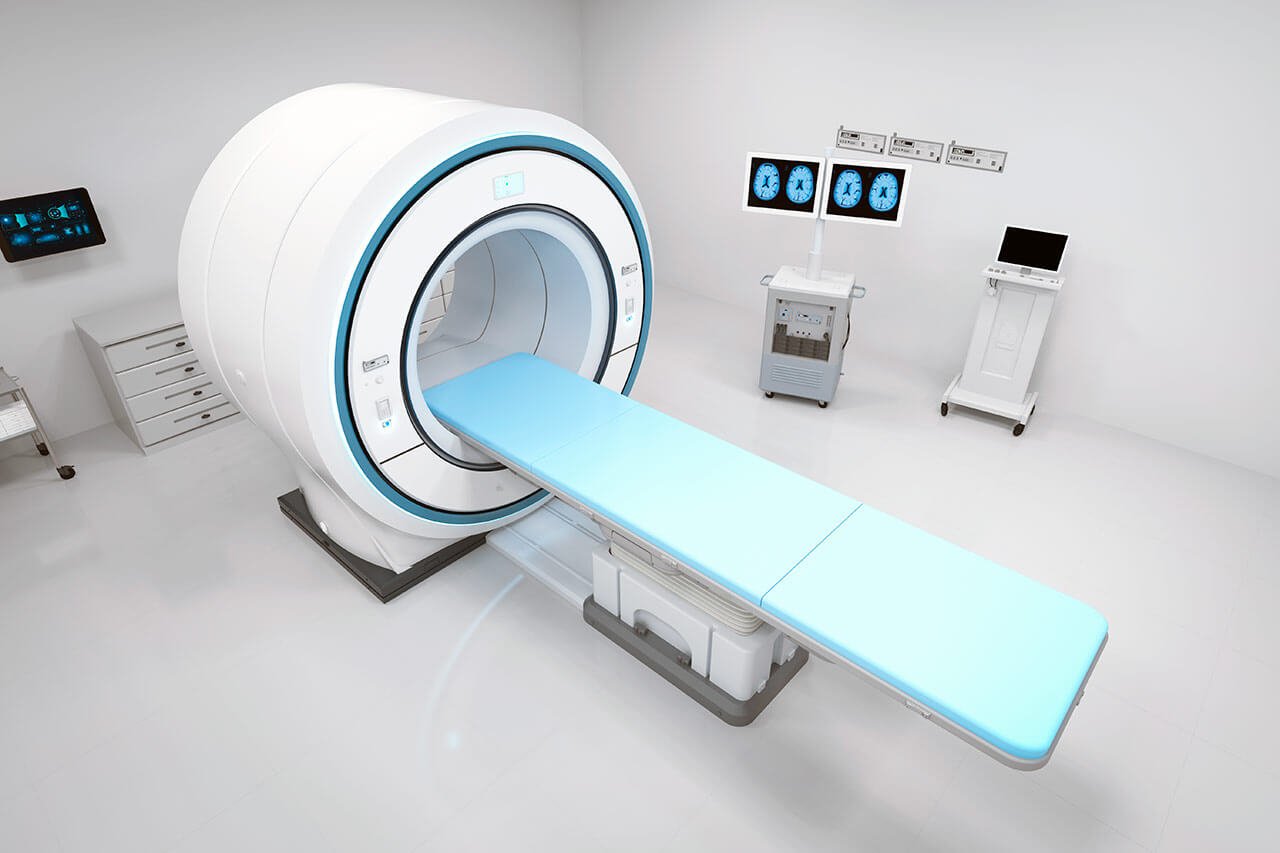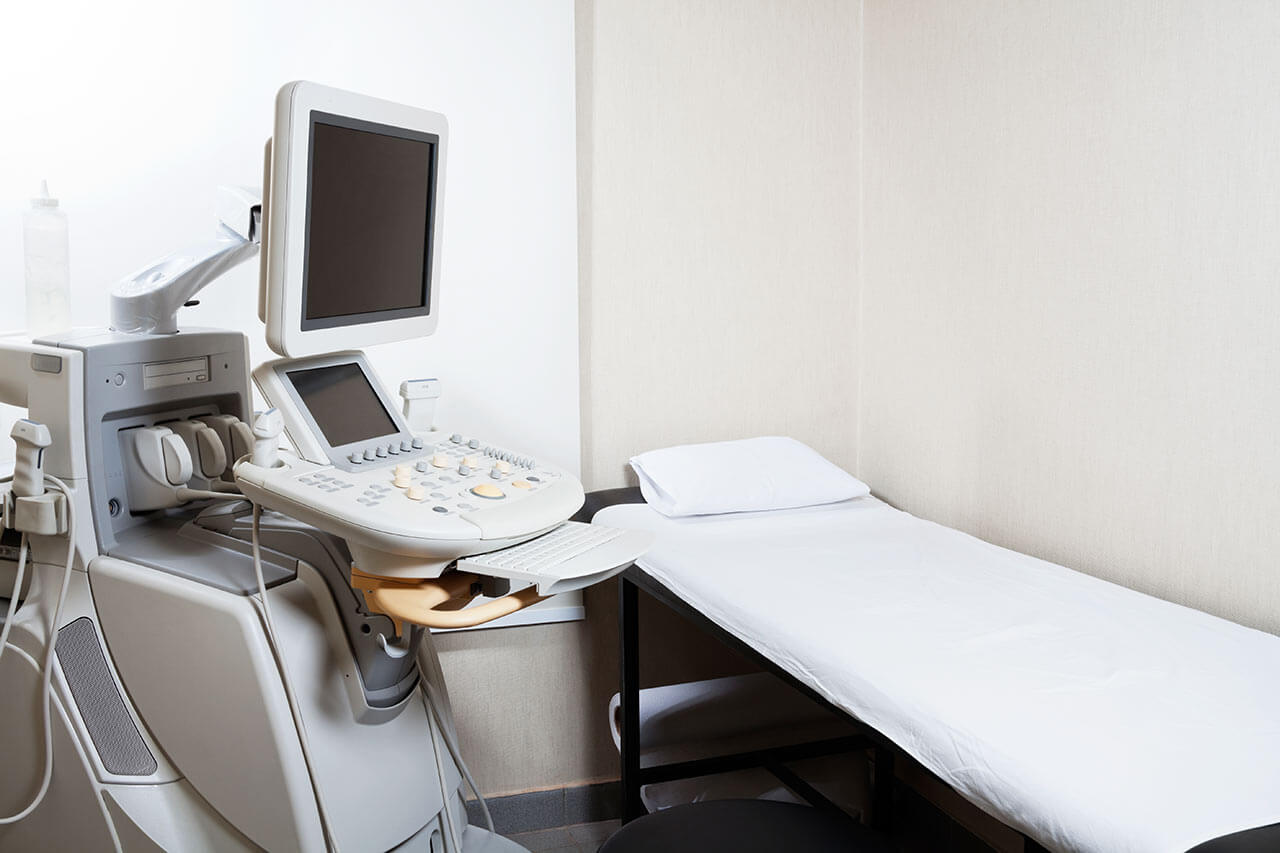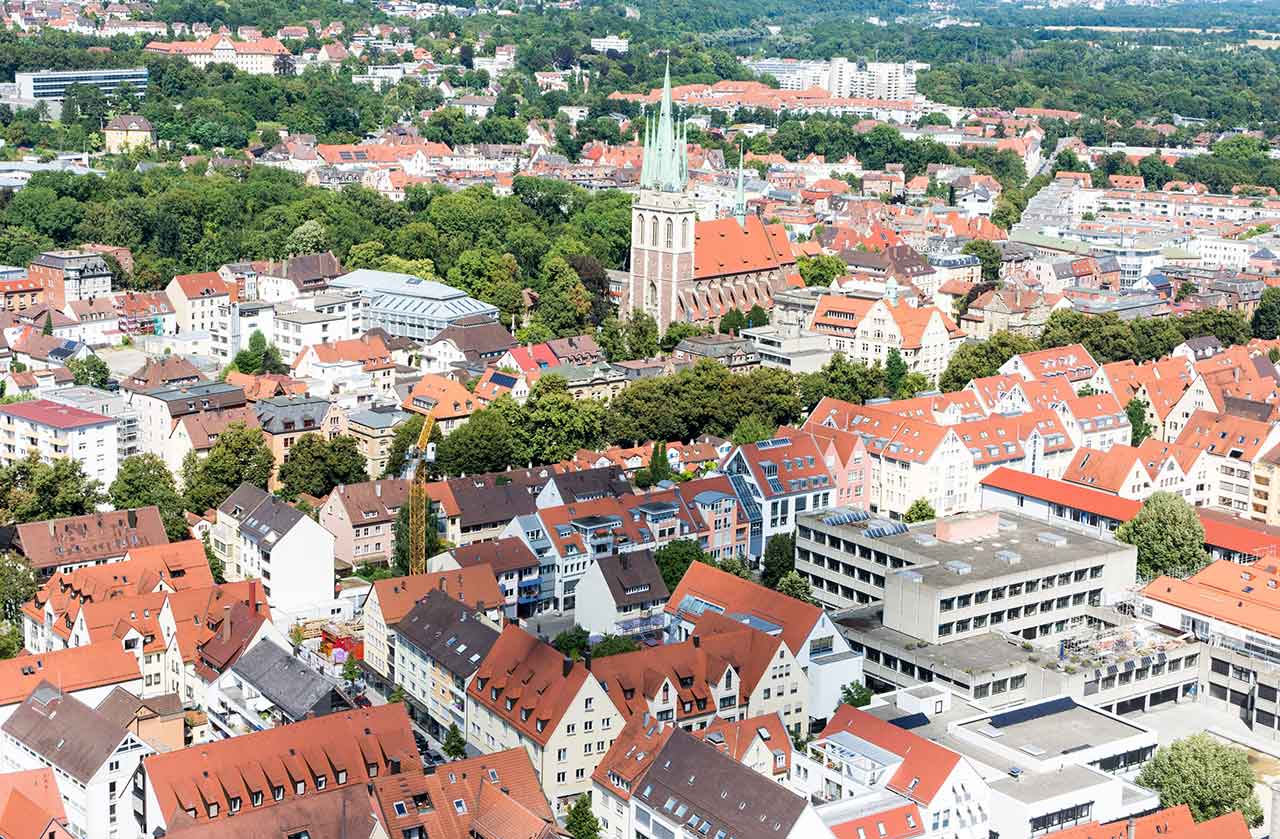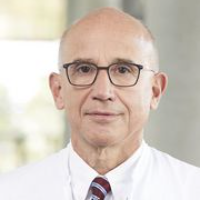
The program includes:
- Initial presentation in the clinic
- clinical history taking
- physical examination
- laboratory tests:
- complete blood count
- general urine analysis
- biochemical analysis of blood
- TSH-basal, fT3, fT4
- tumor markers
- indicators of blood coagulation
- CT scan / MRI of the abdomen
- abdominal ultrasound scan
- 1 course of chemotherapy
- nursing services
- services of leading experts
- explanation of individual treatment plan
How program is carried out
During the first visit, the doctor will conduct a clinical examination and go through the results of previous laboratory tests and instrumental examinations. After that, you will undergo an additional examination, including laboratory assessment of liver and kidney function, ultrasound scan. Based on the received results, the doctor will elaborate the chemotherapy regimen. If necessary, related medical specialists will be involved in the elaboration of a treatment regimen (tumor board).
Chemotherapy is carried out as the day hospital procedure, without mandatory admission to the hospital. After the placement of a venous catheter, you will stay in a comfortable ward. An infusion system will be connected to the catheter, through which the required drug or a drug combination will be administered. All drugs are administered by intravenous drip, slowly, so the total duration of the infusion can be up to several hours. All this time, doctors and nurses will monitor your health condition closely.
After the course of chemotherapy, you will stay under medical supervision in the ward for a few more hours. If your general condition is good, your doctor will allow you to leave the hospital. You will receive the medical report with detailed recommendations regarding further treatment. In the future, you will be able to have a distant consultation with your attending physician and schedule the next course of chemotherapy, if necessary.
Required documents
- Medical records
- MRI/CT scan (not older than 3 months)
- Biopsy results (if available)
Service
You may also book:
 BookingHealth Price from:
BookingHealth Price from:
About the department
The Department of Hematology, Oncology, Rheumatology, Infectology and Bone Marrow Transplantation at the University Hospital Ulm offers modern diagnostics and treatment in all areas of its specialization. The medical facility treats patients with solid malignant tumors of various locations, malignant and benign diseases of the hematopoietic system, rheumatic diseases, and infections. The department enjoys a reputation as one of the leading health facilities for bone marrow transplants in Germany, which is confirmed by accreditation in accordance with JACIE standards. More than 80 allogeneic and more than 100 autologous bone marrow transplants are performed in the medical facility annually. In addition, the department successfully carries out innovative CAR T-cell therapy, which is available only in the most advanced medical centers worldwide. The department is part of the Comprehensive Cancer Center Ulm (CCCU), where a multidisciplinary team of highly professional doctors takes care of the health of patients. The high quality of medical services is confirmed by the certification of the German Cancer Society (DKG). The health of patients is in the safe hands of experienced specialists who strive to provide each patient with the most effective treatment using advanced therapeutic methods. The medical facility has 112 beds and many specialized outpatient clinics.
The Head Physician of the department is Prof. Dr. med. Hartmut Döhner. The specialist is distinguished by his high professionalism in the areas of his specialization and is actively engaged in work on research projects. Prof. Döhner's productive clinical and scientific activities have been recognized with multiple awards and honors. He is a member of German and American professional societies, including the German Society of Hematology and Medical Oncology (DGHO), the American Society of Clinical Oncology (ASCO), the German Cancer Society (DKG), and the American Association for Cancer Research (AACR).
The department has long experience in the treatment of solid malignant tumors. The most common tumors encountered by the department's doctors are lung cancer, kidney cancer, sarcomas, and brain tumors (gliomas, meningiomas, medulloblastomas, and lymphomas). Patients with suspected cancers are diagnosed in collaboration with the Departments of Nuclear Medicine and Radiology. The specialists in gastroenterology, pulmonology, gynecology, urology, neurology, surgery, and others are also engaged in the diagnostic process. Each clinical case is discussed during regular interdisciplinary tumor boards, after which an individual treatment regimen is developed, taking into account diagnostic data, the stage of the disease, the patient's general health condition, their age, and other important factors. The department's doctors use all modern treatment methods available in this field to treat cancer, including various chemotherapy regimens, targeted therapy, hormone therapy, radiation therapy, and immunotherapy. Surgical treatment is performed in cooperation with specialized surgeons using minimally invasive techniques, if possible.
Malignant diseases of the hematopoietic system are treated jointly by the department's oncologists and hematologists. The specialists regularly treat patients with acute myelogenous leukemia, chronic lymphocytic leukemia, myelodysplastic syndrome, myeloproliferative neoplasms, multiple myelomas, and malignant lymphomas. The primary treatment method for leukemia is chemotherapy. If chemotherapy fails or the patient develops a leukemia recurrence, a bone marrow transplant is the second-line treatment. Treatment for myelodysplastic syndrome may include red blood cell transfusion, low-dose chemotherapy combined with supportive therapy and immunosuppressive therapy, or high-dose chemotherapy followed by a bone marrow transplant. The treatment regimen for myeloproliferative neoplasms may include transfusion therapy, chemotherapy, radiation therapy, and high-dose chemotherapy with a bone marrow transplant. In the fight against multiple myeloma and malignant lymphoma, the best results are achieved in a combination of chemotherapy, antibody therapy, and immunotherapy.
A unique offer for patients with blood cancer is CAR T-cell therapy, which has been performed in the department since 2019. This innovative treatment combines elements of immunotherapy, gene therapy, and cell therapy. The therapeutic effect is achieved by genetically programming the patient's own leukocytes to destroy cancer cells. The department's specialists use advanced equipment to extract leukocytes from blood and genetically modify them to express chimeric antigen receptors (CAR). After multiplication in laboratory conditions, millions of modified cells are infused into the patient. CAR T-cell therapy is a last-line treatment when all other options have been exhausted. Numerous clinical trials have proven the high effectiveness and safety of this treatment method.
It is worth noting that one of the department's priority focuses is allogeneic bone marrow transplants, which have been performed here since 1972. Currently, the department offers all types of allogeneic stem cell transplants (related donors, unrelated donors, haploidentical donors, and umbilical cord blood). The department has certification, which allows it to perform autologous and allogeneic stem cell transplants. It is also certified as a center specializing in harvesting peripheral stem cells and spinal cord tissue according to the JACIE (Joint Accreditation Committee of the ISCT and the EBMT) standards. It is noteworthy that the Bone Marrow Transplant Center at the University Hospital Ulm made a major contribution to the establishment of the European Society for Blood and Marrow Transplantation (EBMT), which began its work in 1978. Until today, the department has performed more than 2,500 allogeneic bone marrow transplants and about 2,300 autologous transplants. The department is deservedly proud of its rich experience and successful results in this medical field.
The department has also formed a highly professional team of rheumatologists responsible for the diagnostics and treatment of patients with rheumatoid arthritis, ankylosing spondylitis, systemic lupus erythematosus, scleroderma, and vasculitis. Patients with these pathologies most often receive drug therapy with biologic drugs, including in the form of infusions.
The department's main clinical focuses include:
- Oncology
- Diagnostics and treatment of lung cancer
- Surgical treatment
- Lobectomy
- Pneumonectomy
- Bilobectomy
- Segmentectomy
- Conservative treatment
- Chemotherapy
- Radiation therapy
- Targeted therapy
- Immunotherapy
- Surgical treatment
- Diagnostics and treatment of kidney cancer
- Surgical treatment
- Partial or radical nephrectomy
- Conservative treatment
- Targeted therapy
- Immunotherapy
- Chemotherapy
- Surgical treatment
- Diagnostics and treatment of bone and soft tissue sarcomas
- Surgical treatment
- Surgical resection of neoplasms
- Limb amputation
- Conservative treatment
- Chemotherapy
- Radiation therapy
- Surgical treatment
- Diagnostics and treatment of malignant brain tumors: gliomas, meningiomas, medulloblastomas, and lymphomas.
- Surgical treatment
- Tumor resection surgery
- Conservative treatment
- Chemotherapy
- Radiation therapy
- Surgical treatment
- Diagnostics and treatment of lung cancer
- Hematology
- Diagnostics and treatment of benign hematologic diseases
- Diagnostics and treatment of anemias
- Drug therapy with oral medications
- Infusion therapy
- Diagnostics and treatment of hemophilia
- Substitution infusion therapy
- Diagnostics and treatment of anemias
- Diagnostics and treatment of malignant hematologic diseases
- Diagnostics and treatment of acute myeloid leukemia
- Chemotherapy
- Bone marrow transplant
- Diagnostics and treatment of chronic lymphocytic leukemia
- Chemotherapy
- Bone marrow transplant
- Diagnostics and treatment of myelodysplastic syndrome
- Red blood cell transfusion
- Low-dose chemotherapy combined with supportive therapy and immunosuppressive therapy
- High-dose chemotherapy followed by a bone marrow transplant
- Diagnostics and treatment of myeloproliferative neoplasms
- Transfusion therapy
- Chemotherapy
- Radiation therapy
- High-dose chemotherapy with a bone marrow transplant
- Diagnostics and treatment of multiple myeloma
- Chemotherapy
- Antibody therapy
- Immunotherapy
- Diagnostics and treatment of malignant lymphomas
- Chemotherapy
- Antibody therapy
- Immunotherapy
- Diagnostics and treatment of acute myeloid leukemia
- Diagnostics and treatment of benign hematologic diseases
- Rheumatology
- Diagnostics and treatment of rheumatic diseases
- Diagnostics and treatment of rheumatoid arthritis
- Diagnostics and treatment of ankylosing spondylitis
- Diagnostics and treatment of systemic lupus erythematosus
- Diagnostics and treatment of scleroderma
- Diagnostics and treatment of vasculitis
- Diagnostics and treatment of rheumatic diseases
- Infectology
- Diagnostics and treatment of infectious diseases
- Diagnostics and treatment of echinococcosis
- Diagnostics and treatment of HIV and AIDS
- Diagnostics and treatment of coronavirus infection (COVID-19)
- Diagnostics and treatment of complicated forms of tuberculosis
- Diagnostics and treatment of tropical infections
- Diagnostics and treatment of infectious diseases
- Other medical services
Curriculum vitae
Higher Education
- 1976 - 1977 Medical studies, Faculty of Medicine, University of Regensburg, Regensburg, Germany.
- 1977 - 1979 Medical studies, Faculty of Medicine, University of Freiburg, Freiburg, Germany.
- 1979 - 1980 One-year scholarship, University of Montpellier, Montpellier, France.
- 1980 - 1983 Medical studies, Faculty of Medicine, University of Freiburg, Freiburg, Germany.
Academic Degrees
- 1985 Doctor of Medicine, Faculty of Medicine, University of Freiburg, Freiburg, Germany.
- 1994 PD (habilitation), Faculty of Medicine, University of Heidelberg, Heidelberg, Germany.
- 1999 Professor of Medicine, University of Ulm.
Board Certification
- 1993 Board certification in Internal Medicine.
- 1998 Board certification in Oncology and Hematology.
Professional Career
- 1983 - 1985 Residency (specialization: surgical pathology), Institute of Pathology, St. Vincentius Hospital Karlsruhe, Germany.
- 1985 - 1988 Training in Oncology and Hematology, Department of Hematology and Oncology, University Hospital Heidelberg, Germany.
- 1988 - 1990 Postdoctoral Associate in the Department of Internal Medicine, Section of Oncology, and in the Department of Laboratory Medicine and Pathology, Section of Medical Genetics, University of Minnesota, Minneapolis, USA.
- 1990 - 1993 Training in Oncology and Hematology, Department of Oncology and Hematology, University Hospital Heidelberg, Germany.
- 1993 - 1999 Senior Physician, Department of Oncology and Hematology, University Hospital Heidelberg, Germany.
- 2003 - 2011 Head Physician, Department of Internal Medicine, University Hospital Ulm.
- Since 1999 Head Physician, Department of Hematology, Oncology, Rheumatology, Infectology and Bone Marrow Transplantation, University Hospital Ulm.
- Since 2006 Head Physician, Comprehensive Cancer Center Ulm (CCCU).
- Since 2012 Coordinator, Research Project "Experimental models and clinical trials in leukemia", Collaborative Research Center (SFB).
Memberships in Professional Societies
- 1993 American Society of Hematology (ASH).
- 1996 German Society for Hematology and Medical Oncology (DGHO).
- 2001 European Hematology Association (EHA).
- 2002 American Society of Clinical Oncology (ASCO).
- 2006 German Cancer Society (DKG).
- 2015 American Association for Cancer Research (AACR).
Prizes, Awards, and Honors
- 1979 - 1980 Scholarship, German Academic Exchange Service.
- 1988 - 1990 Scholarship, Mildred Scheel Foundation.
- 1995 Clinical Research Award (for Leukemia Research) from the German Society for Hematology and Medical Oncology (DGHO).
- 2009 Participant in the Kenneth McCredie Lectureship, International Association for Comparative Research on Leukemia and Related Disorders (IACRLRD), Ohio, USA.
- 2010 Anita and Cuno Wieland Research Award for Translational Cancer Research, University of Heidelberg.
- 2011 Wilhelm Warner Award for Cancer Research, Hamburg.
- 2012 Elected Member, Berlin-Brandenburg Academy of Sciences and Humanities.
- 2014 Jose Carreras Award from the European Hematology Association (EHA).
- 2019 Medal from the Polish Society of Hematology and Transfusion Medicine in recognition of special merit in the field of hematology and significant contribution to the development of this medical field.
- 2019 Binet-Rai Medal awarded at the International Workshop on Chronic Lymphocytic Leukemia in recognition of outstanding scientific achievements in the research of this disease.
- 2021 Johann Georg Zimmermann Medal for Cancer Research.
Review Activities in Medical Journals
- Annals of Hematology.
- Blood.
- European Journal of Immunology.
- Genes, Chromosomes and Cancer.
- Haematologica.
- International Journal of Cancer.
- Journal of Clinical Oncology.
- Lancet.
- Leukemia.
- New England Journal of Medicine.
Photo of the doctor: (c) Universitätsklinikum Ulm
About hospital
The University Hospital Ulm is an advanced medical complex that provides patients with high-class medical care using the very latest scientific achievements. The medical facility has been performing successful clinical activities for more than 40 years and has long earned an excellent reputation throughout Europe. The hospital regularly demonstrates high treatment success rates, takes an active part in the training of medical students, and works tirelessly on promising research projects.
The university hospital consists of 29 specialized departments and 16 scientific institutes, where more than 7,000 highly qualified employees work for the benefit of their patients. More than 55,000 inpatients and about 300,000 outpatients are treated here every year. The hospital has 1,274 beds. The medical team of the hospital is focused on providing personalized medical services using the most modern and sparing diagnostic and treatment methods.
The University Hospital Ulm is the largest medical complex in the region, and practically all areas of modern medicine are represented here. Transplantology and oncology are among the priority areas of clinical activity in the medical facility. The hospital holds leading positions in the world in bone marrow transplantation. In addition, the hospital has advanced experience in cancer treatment. The Comprehensive Cancer Center is recognized as the leading facility of this kind in the country, and it is certified by the German Cancer Society (DKG). It provides effective treatment for various types of cancer. The center also offers innovative CAR T-cell therapy. In addition, the Cancer Center is actively engaged in research activities to improve available treatment methods and develop innovative therapeutic techniques to fight cancer.
Along with the use of advanced technologies, doctors show respect, understanding, and a humane attitude toward the patient. The medical team includes competent psychologists, who are always ready to provide assistance and support to the patients and their families during the therapeutic process.
Photo: (с) depositphotos
Accommodation in hospital
Patients rooms
The patients of the University Hospital Ulm live in comfortable single and double rooms with a modern design and light colors. All patient rooms have an ensuite bathroom with a toilet and a shower. The patient room furnishings include a comfortable automatically adjustable bed, a bedside table, a wardrobe, a table and chairs, a telephone, a radio, and a TV. Wi-Fi access is also available in patient rooms.
The hospital also offers enhanced-comfort rooms, which additionally have a safe, a refrigerator, and upholstered furniture. The bathroom in the enhanced-comfort room has changeable towels, a cosmetic mirror, a hairdryer, and toiletries.
Meals and Menus
Patients and their accompanying person are offered three meals a day: breakfast, lunch, and dinner. The patient and accompanying person have a choice of three menus every day, including a vegetarian menu. Patients staying in the enhanced-comfort rooms are also offered light snacks, fruits, desserts, and hot and cold drinks in the comfortable lounge area.
If, for some reason, you do not eat all the foods, you will be offered an individual menu. Please inform the medical staff about your dietary preferences prior to treatment.
Further details
Standard rooms include:
![]() Shower
Shower
![]() Toilet
Toilet
![]() Wi-Fi
Wi-Fi
![]() TV
TV
Religion
The hospital has a chapel where Catholic and Protestant services are held weekly. The services are also broadcast on the internal television channel of the hospital. The chapel is open 24 hours a day for visits and prayers.
The services of other religious representatives are available upon request.
Accompanying person
Your accompanying person may stay with you in your patient room or at the hotel of your choice during the inpatient program.
Hotel
You may stay at the hotel of your choice during the outpatient program. Our managers will support you for selecting the best option.
